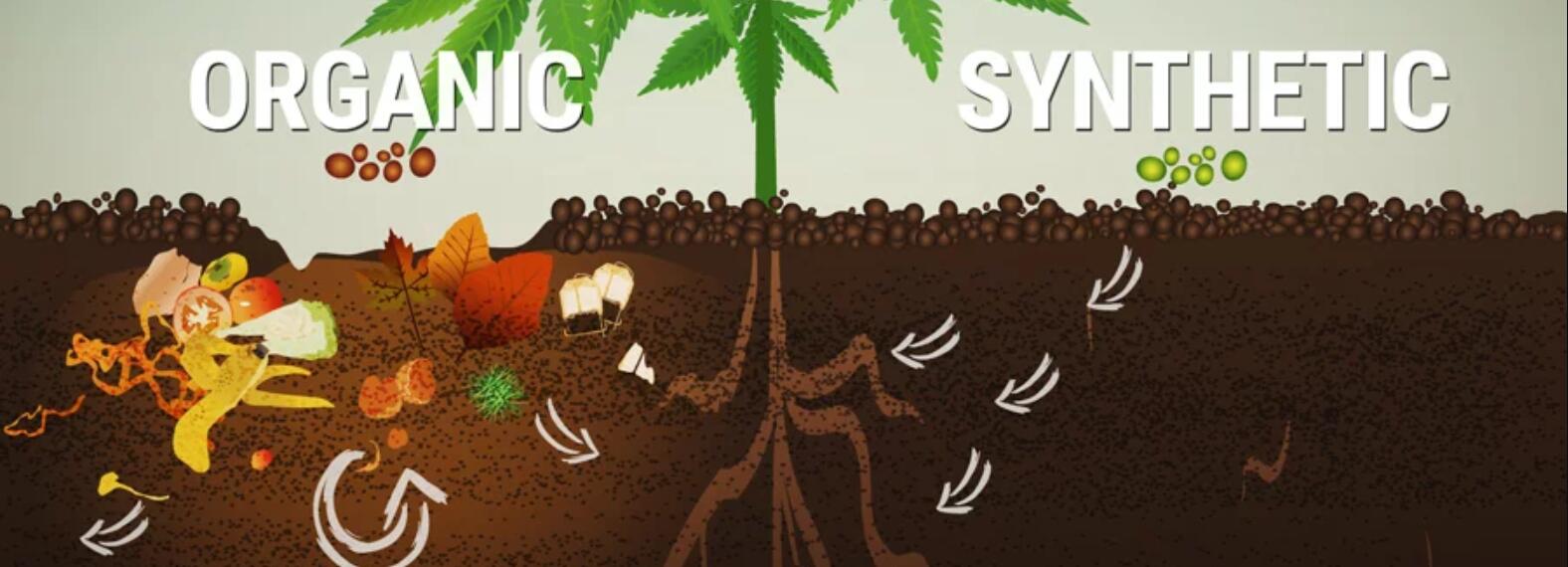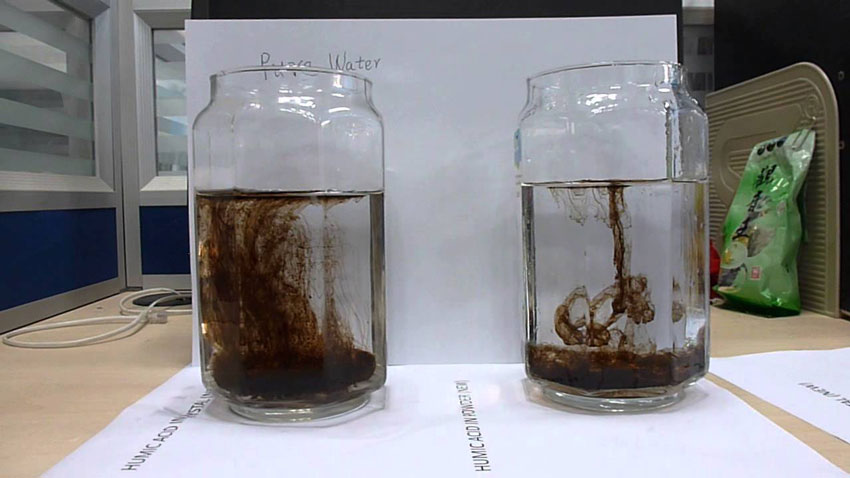Humic acid contains a variety of active functional genes, using on crops can enhance the activity of catalase and polyphenol oxidase. Stimulate physiological metabolism and promote growth and development.
For example humic acid can promote early germination of seeds and high emergence rate especially at low temperature. It can stimulate the division and growth of root extreme meristem cells and make seedlings grow faster. Increase more roots and make root extension.
Thus improve the ability of crops to absorb water and nutrients. Therefore, the supply of nutrients is sufficient. The stems of crops grows fast and strong. The branches and leaves are luxuriant. Photosynthesis is enhanced. The transfer of nutrients to fruiting bodies is accelerate. Fruits are colored and mature in advance.
1. Humic acid using on crops: Change the characteristics of Chemical Fertilizer
 Humic acid contains carboxy, phenolic hydroxyl and other functional groups, which has strong ion exchange and adsorption capacity. Reduce the loss of ammonium carbonate nitrogen and improve the utilization rate of nitrogen fertilizer.
Humic acid contains carboxy, phenolic hydroxyl and other functional groups, which has strong ion exchange and adsorption capacity. Reduce the loss of ammonium carbonate nitrogen and improve the utilization rate of nitrogen fertilizer.
Nitro humic acid degraded by oxidation can inhibit the activity of urinary enzyme and reduce the volatilization of urea. The degraded nitro humic acid increased the distance of phosphorus movement in the soil. Inhibited the fixation of water-soluble phosphorus in the soil. Transformed available phosphorus into slow release available phosphorus. Promoted the absorption of phosphorus by roots.
Humic acid functional groups can absorb and store potassium ions. Make potassium fertilizer decompose slowly. Increase potassium release amount. Increase the content of available potassium. Humic acid and insoluble trace elements can react with each other to form humic acid trace elements chelate which can be absorbed by crops with good solubility, and is beneficial to root and leaf absorption of trace elements.
2. Humic acid using on crops: Improve soil texture
 Humic acid can promote the formation of the crumb structure of the soil. Adjust the PH of the soil. Adjust the soil water, the fertilizer, the air and the heat condition. Improve the soil exchange capacity, reach the acid-base balance. Improve the water retention and fertilizer-keeping capacity of the soil.
Humic acid can promote the formation of the crumb structure of the soil. Adjust the PH of the soil. Adjust the soil water, the fertilizer, the air and the heat condition. Improve the soil exchange capacity, reach the acid-base balance. Improve the water retention and fertilizer-keeping capacity of the soil.
Promote the activity of the soil microorganism. Enable the quantity of the aerobic bacteria, the actinomycetes, the cellulolytic bacteria is increased, the decomposition and transformation of the organic substances are accelerated, the release of the nutrient elements is promoted, and the nutrition of the crops is facilitated.
3. Increasing plant resistibility
Humic acid can reduce stomatal opening intensity of plant leaves. Reduce leaf transpiration, thus the water  consumption is reduced. Improve the water status of plants. Ensure the normal growth and development of crops under drought conditions. Enhance drought resistance.
consumption is reduced. Improve the water status of plants. Ensure the normal growth and development of crops under drought conditions. Enhance drought resistance.
Humic acid is mostly amphoteric colloid, which has high surface activity and has inhibitory effect on fungi. It can enhance the cold resistance of crops. Easy to be adsorbed by cell membrane. Change the permeability of cell membrane. Promote the absorption of inorganic nutrients. Prevent rot disease, root rot disease and reduce diseases and insect pests.
4. Improve fruit quality
 Humic acid can form complex or chelate with trace elements. Increase the amount of trace elements moving from root to leaf or other parts. Regulate the proportion and balance of constant elements and trace elements. Strengthen the synthesis and transportation of sugar, starch, protein, fat and various vitamins by enzymes.
Humic acid can form complex or chelate with trace elements. Increase the amount of trace elements moving from root to leaf or other parts. Regulate the proportion and balance of constant elements and trace elements. Strengthen the synthesis and transportation of sugar, starch, protein, fat and various vitamins by enzymes.
It can promote the activity of enzyme. Transform polysaccharide into soluble monosaccharide. Increase the synthesis and accumulation of starch, protein and fat substances. Accelerate the primary products of various metabolism transformed from stem, leaf or root to fruit and seed, and make the fruit havrest and good quality .





